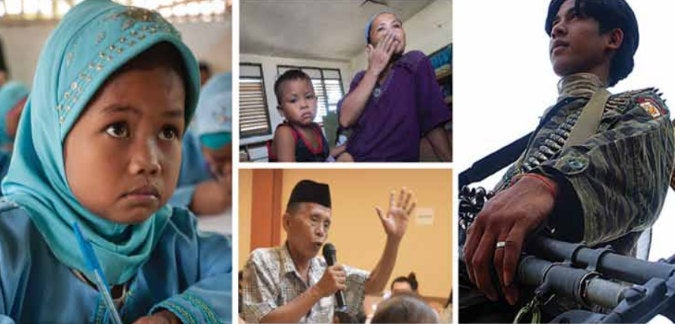Integrating a gender perspective into transitional justice in the Bangsamoro

Transitional justice is a critical component to strengthen the rule of law in a post-conflict setting and an integral element to peacebuilding as it aims to redress for past human rights violations. In a transitional or post-conflict setting, such as that of the Bangsamoro, it is imperative that women’s right to access justice is recognized as part of achieving and sustaining peace and ensuring accountability for crimes committed in times of conflict against women and girls.
The Normalization Annex of the Comprehensive Agreement on the Bangsamoro (CAB), the agreement between the Philippine Government and the Moro Islamic Liberation Front (MILF) completed in 2014, included a provision on transitional justice. The Transitional Justice and Reconciliation Commission (TJRC) was created specifically to undertake a study to address the legitimate grievances of the Bangsamoro people, correct historical injustices, and address human rights violations against the Bangsamoro.
UN Women, through the European Union, ensured that gender considerations are included in the work of the TJRC. Through the support of a gender advisor, TJRC integrated gender-related findings and recommendations into its report which was submitted to both panels of the government and the MILF in 2015 and launched publicly in March 2016. The report serves as the basis of various women leaders and civil society organizations to lobby and advocate for actions on transitional justice.
A second phase of the project is underway using the TJRC report recommendations. The project began its implementation in 2015 and will end in 2017.
See also: